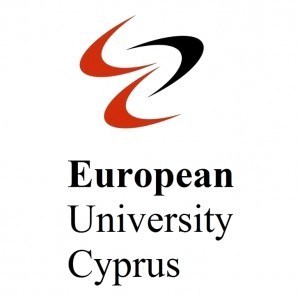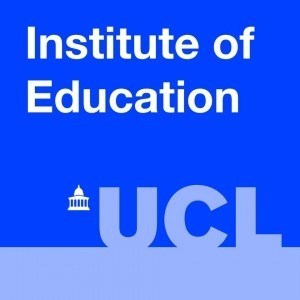Photos of university / #edinburghuniversity
The MSc in Digital Education at The University of Edinburgh offers a comprehensive exploration into the innovative ways digital technologies are transforming education and learning environments worldwide. This program is designed for educators, researchers, policymakers, and technology professionals who are interested in understanding and advancing the integration of digital tools within educational contexts. Throughout the course, students will examine a wide range of topics, including online learning, e-learning design, digital literacy, educational technologies, and the socio-cultural implications of digital education. The curriculum combines theoretical frameworks with practical applications, providing learners with the skills necessary to design, implement, and evaluate digital learning experiences effectively.
Students will have opportunities to engage with cutting-edge research and participate in interactive projects that reflect real-world challenges in digital education. The program emphasizes the development of critical thinking, technological proficiency, and pedagogical skills, enabling graduates to contribute meaningfully to the evolving landscape of digital learning at schools, universities, corporations, and non-profit organizations. Coursework includes modules on digital pedagogy, learning analytics, mobile learning, and the ethical considerations surrounding digital intervention in education. Additionally, students can choose elective modules that explore innovative topics such as augmented reality, virtual classrooms, and gamification in learning environments.
The MSc in Digital Education is delivered through a blend of online and campus-based sessions, allowing flexibility for international students and working professionals. The program not only enhances participants' understanding of digital tools but also encourages the development of research skills and the ability to critically analyze emerging trends and technologies. Graduates will be equipped to work as digital education specialists, curriculum developers, educational researchers, and technology consultants, capable of leading digital transformation initiatives within various educational sectors. With access to University resources, expert faculty, and a vibrant academic community, students will be well-prepared to drive innovation and create impactful educational experiences in a digitally connected world.
The MSc in Digital Education at The University of Edinburgh offers a comprehensive exploration of the innovative ways digital technologies transform teaching, learning, and assessment in diverse educational settings. This programme is designed to equip students with the critical understanding and practical skills necessary to lead and support digital transformation within educational institutions, workplaces, and broader society. Throughout the course, students will examine the theoretical underpinnings of digital education, alongside current trends and emerging practices, ensuring they are at the forefront of educational technology development.
The curriculum encompasses a wide range of topics, including digital pedagogies, online learning environments, educational design and development, digital literacy, and the use of data and analytics to inform teaching practices. Students will have opportunities to engage with real-world challenges faced by educators and institutions, applying their knowledge through project-based work, case studies, and research activities. The programme emphasizes both theoretical insights and practical application, preparing graduates to innovate and adapt in the rapidly changing landscape of digital education.
Designed for educators, educational technologists, policy makers, and other professionals interested in digital learning, this MSc provides a flexible learning pathway that can be tailored to individual career goals. The programme combines taught modules delivered through in-person and online formats, along with a dissertation that offers an opportunity to conduct independent research on a topic of personal interest within digital education. Students will benefit from the expertise of world-leading academics, as well as opportunities for collaboration and networking within the vibrant university community.
Graduates of the MSc in Digital Education will be well-positioned to take on leadership roles in educational development, e-learning design, and policy formulation. The skills acquired will support career advancement in universities, schools, government agencies, private sector organizations, and international education initiatives. With an emphasis on innovative practices and evidence-based approaches, the programme prepares graduates to contribute meaningfully to the future of education in a digitally connected world.
Program requirements for the MSc in Digital Education at The University of Edinburgh include a combination of core courses, elective modules, and a dissertation project. Applicants are expected to hold a good honours degree or equivalent in a related subject such as education, information technology, or a relevant discipline. Relevant work experience in educational or technological environments may also be considered during the admissions process. Proficiency in English language is required, demonstrated through certificates such as IELTS or TOEFL, unless the applicant has previously studied in an English-speaking country or institution.
The core curriculum covers essential topics such as digital learning design, e-learning adult education, and the theoretical foundations of digital education. Students are required to complete these modules to gain foundational knowledge and practical skills in the field. Elective modules offer the chance to specialise further, with options including digital pedagogies, social media in education, mobile learning, and data-driven decision making.
In addition to coursework, students must undertake a research dissertation, which involves independent investigation into a specific area of digital education. This project demonstrates the ability to apply theoretical knowledge to practical problems and often involves data collection, analysis, and critical reflection. Throughout the programme, students are encouraged to engage in collaborative projects, practical workshops, and seminars.
Expected commitments include attending lectures, completing assignments on time, and participating in group activities. The programme aims to develop skills necessary for careers in educational technology, digital curriculum development, online teaching, and research in digital education. Overall, the requirements are designed to ensure students acquire both theoretical insights and practical competencies suited for the evolving landscape of digital learning environments.
The University of Edinburgh offers a range of financing options for students pursuing their Digital Education program. Tuition fees vary depending on the level of study and the student's residence status. For UK students, the annual tuition fee is approximately £9,250, while international students can expect fees around £22,000 per year. These fees are subject to annual review and may fluctuate. In addition to tuition, students should account for living expenses, which can vary depending on lifestyle and accommodation choices. The university recommends budgeting approximately £10,000 to £12,000 per year to cover accommodation, food, transportation, and personal costs within Edinburgh.
Funding opportunities include various scholarships, bursaries, and grants specific to digital education and related fields. The university offers scholarships based on academic merit and financial need, some of which are exclusive to international students. Applicants are encouraged to explore the University of Edinburgh's Scholarships and Funding webpages for detailed eligibility criteria and application procedures. Furthermore, students may consider external funding sources such as government grants, private scholarships, or sponsorships from organizations interested in advancing digital education.
Students are also advised to investigate loan options available through government-funded schemes, which can help spread the cost of tuition over time. The UK students may access student loans through Student Finance England, Scotland, Wales, or Northern Ireland, depending on their domicile. International students should explore potential funding offered by their home countries or educational organizations that support study abroad initiatives.
The university also promotes flexible payment plans that can help manage financial commitments over the course of the program. These may include installment options and payment deadlines aligned with academic years. It is recommended that prospective students contact the university’s financial aid advisors early in the application process to discuss personalized financing options and ensure they meet all necessary requirements.
In summary, funding for the Digital Education program at the University of Edinburgh is multifaceted, encompassing internal scholarships, government loans, external grants, and flexible payment schemes. Proactive planning and thorough research into available options can significantly ease the financial burden associated with postgraduate studies.
The MSc in Digital Education at The University of Edinburgh is a comprehensive postgraduate programme designed to equip students with the skills and knowledge necessary to understand and develop digital technologies in educational settings. This programme focuses on the integration of digital tools and resources into teaching and learning processes, emphasizing innovative pedagogical approaches, educational technology, and the social, cultural, and policy implications of digital education.
The curriculum covers a wide range of topics, including online learning design, e-learning assessment, digital literacy, mobile learning, open educational resources, and the development of digital competencies. Students will explore theoretical frameworks underpinning digital education and gain practical experience through project work and case studies. The programme promotes critical thinking about the impact of digital technologies on educational equity, access, and quality, preparing graduates for roles in educational institutions, government agencies, non-profit organizations, and private industry.
Offered through the School of Informatics, the MSc in Digital Education is suitable for educators, researchers, policy makers, and technology professionals interested in advancing their understanding of digital learning environments. The programme can be completed full-time over one year or part-time over a longer period, accommodating working professionals. It combines online learning modules, face-to-face sessions, and project-based assessments to foster a flexible and engaging learning experience.
Graduates of the programme will be well-prepared to design and implement effective digital educational initiatives, evaluate emerging learning technologies, and contribute to policy development in the field of digital education. The programme also offers pathways for further academic research, including potential progression to doctoral studies. Throughout the course, students benefit from the university’s renowned academic community, access to cutting-edge research, and collaboration opportunities with industry partners. The programme aims to foster innovative thinking, digital fluency, and leadership skills in the rapidly evolving landscape of digital education.









